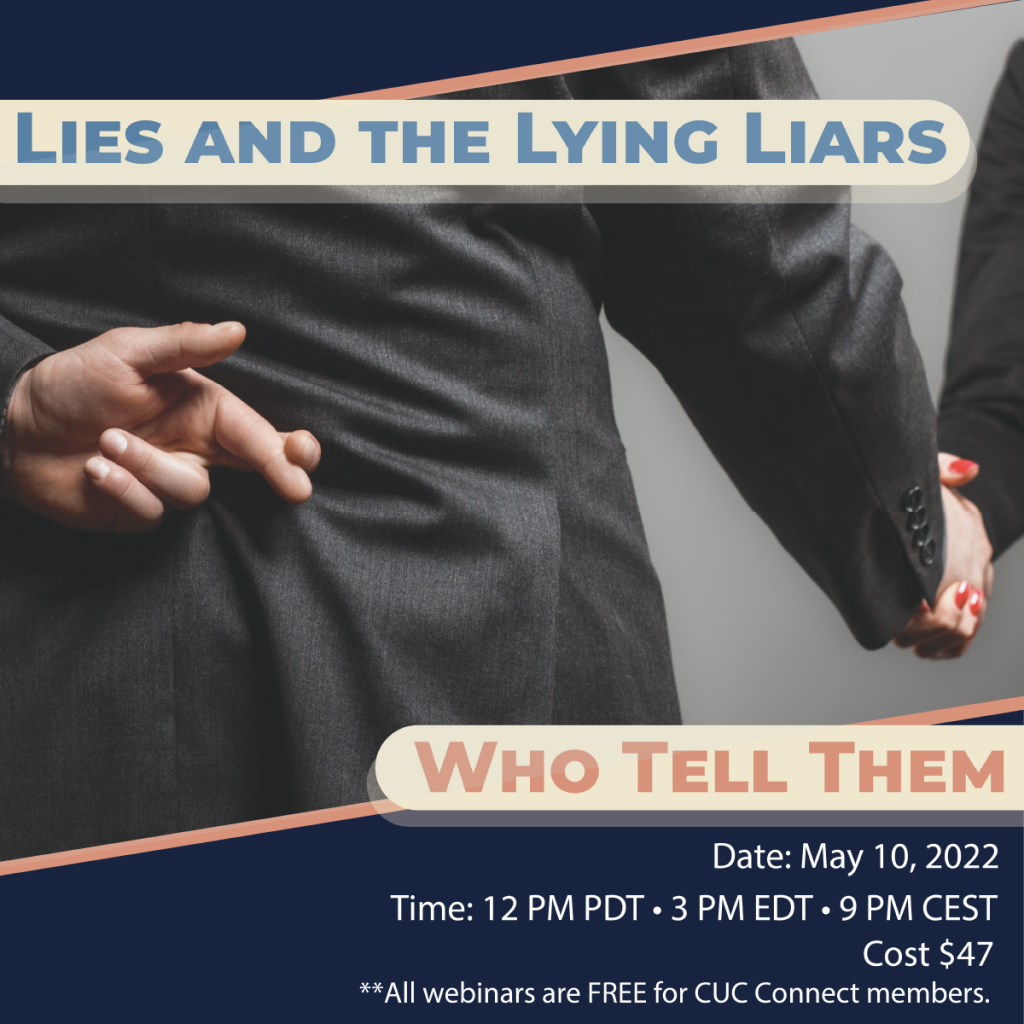
By Gary Friedman and Amanda Ripley
Want some truth? The two of us, we lie. We bet that you do, too. While lying is not one of humanity’s more virtuous characteristics, it is part of what makes us human. As journalists and mediators, we are faced with special challenges: in journalism, we don’t want to perpetuate a lie, and in mediation, we don’t want an unnoticed lie to lead to an unjust outcome.
There are many reasons we tell lies. Sometimes our lies are status-seeking, like when we peel off and rearrange the stickers on a Rubik’s cube so other people will think we are smart (of course, neither of us have ever done this!). Other times, we may lie for self-protection or to prevent a worse outcome, like taking our sister’s Girl Scout cookie money (nor have we ever done this!). Lies can also be manipulative. Sometimes we lie for multiple reasons all at once.
In our professions, it is important that we have ways of dealing with lies as they come up. Some lies are easier to manage than others. Knowing when and how to call out a lie is heavily dependent on context. Understanding is a fundamental tool that we can use to develop a deeper sense of what is at the heart of the lie. What are the emotions and wants of a person when they choose deception in a difficult conversation? It may seem counterintuitive to empathize with a liar; however, it can be helpful to us to remember that we all lie and that understanding the liar within us can open us up to people who are typically “othered” as their lies get exposed.
Lots of people have claimed they can detect when someone is lying, and we all want to believe it’s possible. Is someone making too little eye contact? Wait, or is it too much eye contact? Detecting a lie is not nearly as simple as procedural cop shows may have us believe. Research portrays a more complicated picture. And even with our long experiences, neither of us have a perfect track record for detecting lies.
On May 10, we will be hosting the webinar, Lies and the Lying Liars Who Tell Them. We want people to come away with more sensitivity to themselves, and an ability to connect with someone–even though they are lying–while still retaining integrity. We will focus on understanding why people lie, how to deal with lies, and how to think more creatively about the best response to a liar. We may even share with you a couple of our own lies.
Want to hear about lying from this pair of liars? Be sure to register by May 10 (11 AM EST / 8 AM PST) by clicking here.


